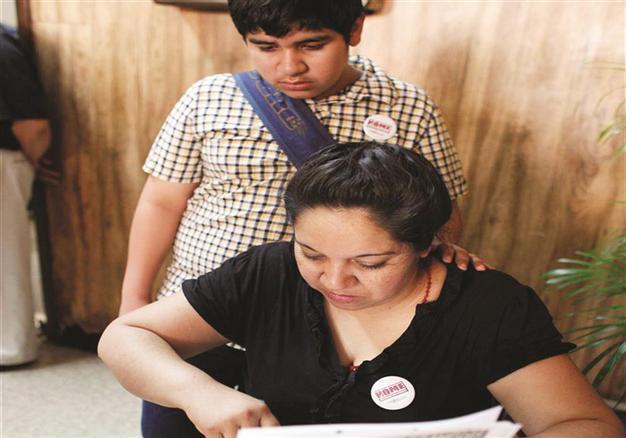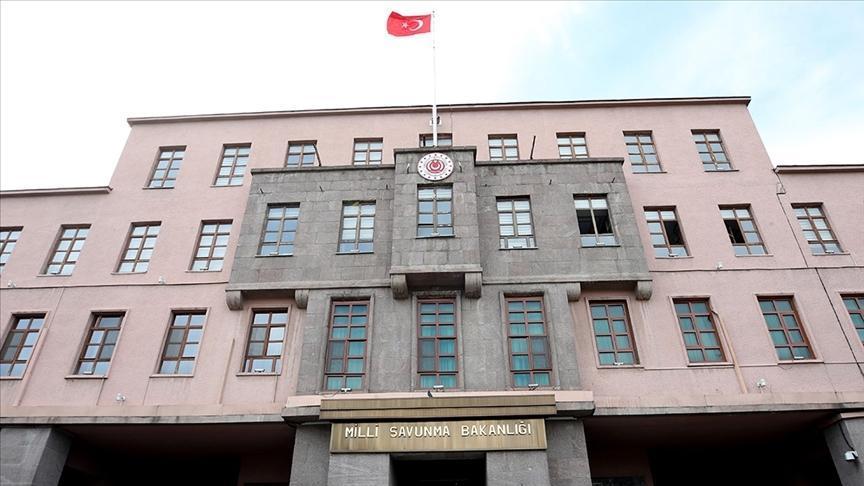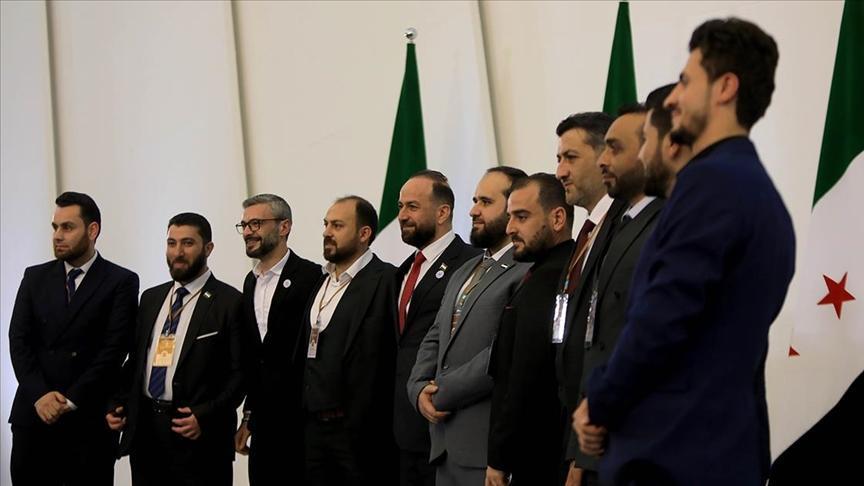US Republicans favor helping children of illegal immigrants
WASHINGTON - Reuters

A Mexican boy watches his mother sign their documents before they plan to walk to US port of entry to request humanitarian parole in Mexico. US House Republicans say undocumented children in the country should be given a reprieve. AP photo
Republicans in the House of Representatives started to coalesce on July 23 around the idea of legalizing the children who were brought to the country by their parents, marking their first step toward dealing with the millions of undocumented foreigners living in the United States.Under pressure from members of their own party, religious groups and Hispanics, House Republicans are bucking their traditional position of opposing citizenship for illegal immigrants, saying those children, known as DREAMers, the undocumented children, should be given a reprieve.
“They surely don’t share the culpability of their parents,” House Judiciary Committee Chairman Bob Goodlatte said at a hearing to examine the issue. But Goodlatte, whose committee is in charge of writing immigration laws, made it clear he did not think the parents should get a pass. “I do not believe that parents who made the decision to illegally enter the U.S. while forcing their children to join them should be afforded the same treatment as these kids,” he said.
The majority of Republican lawmakers believe that giving the illegal immigrant population a route to citizenship is akin to rewarding lawbreakers. Although they agree with Democrats that the country’s immigration system does not work, they are deeply divided on how to change the laws.
Legal status in return for serving in army
Of the estimated 11 million foreigners living in the country illegally, around 2 million entered under the age of 16, experts have said.
Goodlatte is working with Eric Cantor, the second-ranking Republican in the House, on legislation to give young illegal immigrants a way to earn citizenship, an approach that could be similar to a Democratic bill they voted against in 2010.
Cantor and Goodlatte have not said when they will introduce the legislation, and it is unlikely they will do so before members hear from their constituents during the month-long August break. They also have not provided details on their bill or said how it might differ from the Senate’s treatment of these children as part of a larger immigration bill.
At the House Judiciary subcommittee hearing, Republican after Republican representative spoke about how it was unfair to lump the undocumented youth with their parents, who broke the law when they crossed the border illegally.
Jeff Denham of California suggested that the undocumented children be required to serve in the military to earn legal status in the United States, while Ted Poe of Texas called them special children who should be treated in a special way that would bring them into society because they did not have the intent to break the law.
The Republican chairman of the immigration subcommittee, Trey Gowdy, said the children who were brought to the United States have not committed a crime. The hearing was stacked with witnesses sympathetic to the undocumented youth, a sign of how Republicans’ positions have shifted from the last time Washington debated overhauling the immigration system during the George W. Bush administration.
Republican Representative Steve King, who is vehemently opposed to legalizing any of the undocumented foreigners, asked when would the United States start enforcing the law - though he said the illegal youth’s plight tugged “at his heart” as well.
The DREAMers have already rejected the House Republican approach, saying it will tear their families apart and discriminate against the rest of the undocumented population in the United States. The Senate, with the support of 14 Republican members, has already passed an immigration bill that would increase work visas, bolster security at the U.S.-Mexico border and provide a 13-year path to citizenship for undocumented immigrants.
















